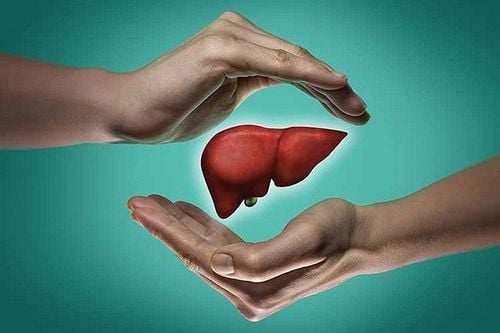This is an automatically translated article.
Urinary tract infection is a disease that can affect anyone. However, women are often more susceptible to the disease than men. Long-term female urinary tract infections will cause many troubles, affecting the health, activities and fertility of women.1. What is a urinary tract infection?
Urinary tract infections, also known as UTIs, are infections that occur in the urinary tract, mainly caused by bacteria that cause inflammation. Urinary tract infections occur in all genders and ages, but are most common in women, 5 times more common than in men.
About 11% of girls under 18 years of age have UTIs and nearly 20% of women aged 18-24, this rate increases for women of childbearing age and perimenopause , Menopause.
2. Why are women prone to urinary tract infections?
There are many causes of urinary tract infections in women, including the following main causes:
2.1 E.Coli bacteria E.Coli bacteria easily penetrate the female urinary system and cause disease. Because the female urinary tract is short and straight, the urethral opening is close to the vagina and anus. E.Coli is a harmful bacteria residing in the intestinal tract, easily causing inflammation when living in the urinary tract and is the main cause of urinary tract infections in women. Inflammation can occur in the urethra, bladder, kidneys... these are all organs of the urinary tract.
2.2 Habit of holding urine, drinking less water Women are more likely to get UTIs than men because of the habit of holding urine and drinking less water. When holding urine, urine will be condensed, this is a favorable condition for E.Coli bacteria to grow.

Uống nhiều nước giúp thanh lọc cơ thể, giảm thiểu bệnh
2.3 Improper personal hygiene Improper personal hygiene is also the main reason why women are prone to urinary tract infections:
When defecating or urinating, due to habit or convenience, women often clean from back to front. This movement will make it easier for bacteria from the anus to access the urinary tract, so the risk of infection in women will be higher. The habit of douching too strongly, too carefully makes the urinary tract easy to scratch, cause damage and create conditions for E.Coli bacteria to penetrate. Another feature that makes women more susceptible to UTIs is the menstrual cycle. During menstruation, many women do not clean properly, do not change tampons regularly (3-4 hours should change once) causing bacteria to grow. Besides, during childbirth, women's pelvic structure changes, if not paying attention to careful urethral hygiene, women are very susceptible to urinary tract infections. Before and after sex, if a woman does not clean properly, she is also very susceptible to infection and is at risk of repeating it many times. There are also a number of other causes affecting women such as: Contaminated water environment, unclean personal hygiene items, non-compliance with the principle of one-to-one relationship, frequent contact with infected people. Infectious diseases, neurological dysfunction in bladder control...
Note, female patients with diabetes also have a higher risk of UTIs than normal. Estrogen deficiency in premenopausal and menopausal women will lead to hot flashes and hot flashes in the body, which is the cause of non-infectious urinary tract infections.
3. Manifestations of urinary tract infections in women
Frequent feeling of needing to urinate. Feeling pain, pressure in the lower abdomen, especially pain when urinating.

Thường đau tức bụng dưới là biểu hiện viêm đường tiết niệu ở nữ
Sensation of painful urination, frequent urination. Cloudy urine, strong smell, even blood in urine Severe pain in the waist position. Or nocturia. There are symptoms of fever, usually low-grade fever or high fever lasting in episodes, about 2-4 days.
4. Possible complications of urinary tract infections in women
Urinary tract infections can lead to a lot of different complications. The virulence of pathogenic bacteria can go upstream of the urinary system to destroy renal tissue, necrosis of the renal papilla, and obstruct or impair renal function. If the infection persists, it can lead to permanent kidney failure or the need to remove the kidney.
In case urinary tract bacteria are not treated with enough antibiotics, bacteria can enter the bloodstream causing sepsis, septic shock and even death. In particular, UTIs in pregnant women have the risk of leading to amniotic fluid infection, fetal infection, increasing the risk of premature rupture of membranes, premature birth...
So when there are signs of suspicion of urinary tract infection. You need to make an appointment immediately with the Urology specialists of Vinmec International General Hospital for timely examination and treatment.
Please dial HOTLINE for more information or register for an appointment HERE. Download MyVinmec app to make appointments faster and to manage your bookings easily.













